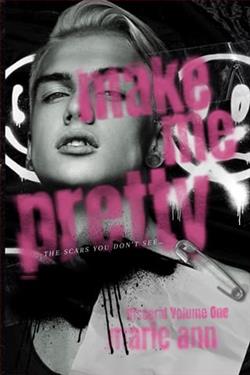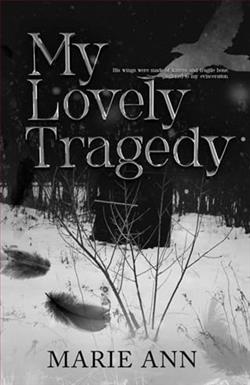Page 3 of The Matchmaker's Melody
“I don’t want to come across as stalkerish. And I don’t want to seem like I’m giving her the third degree. I just want to be friendly, and if I know something about her, it’s a start to finding things to talk about. Please?” Oh heavens, she did sound a bit like a whiny five-year-old, didn’t she? “I just want to help. Do you know anything? You were chatting with her for a while on Thursday night.”
She swore she could hear his eyes roll over the phone.
“I don’t know much. She just told me a couple of things. It was hardly an interview. We were talking about job options and school. What do you want to know?”
“First,” Emma informed him, “we need to do this in person. You never answer emails or texts, but no one talks on the phone anymore. Or I can email you, if you promise to reply.”
Another moment of silence.
“Fine. In person. And no one uses phones to talk anymore? I suppose I’m a dinosaur, then. Come over, and we can order pizza. Do you know where I live?”
“Same place as when you had everyone for the Christmas party last year, unless you’ve moved. It’s not far. I’ll bring cookies.”
Gordon lived in a small house in a rather nice part of town, near Lawrence Avenue and Yonge Street. It was one of the few remaining original homes on the street, most having been replaced in recent years by the huge piles of faux chateaux that were in fashion, sacrificing cute for square footage. What Gordon’s house lacked in floor space, it made up for in style. He was a civil engineer, who worked in the construction industry, and knew his share of architects and designers, and had called upon their collective wisdom to remodel the inside of his own home.
Emma had been inside once before, but that was with a fairly large crowd of families and business associates, and she hadn’t really taken too much notice of the decor through the masses. Now, without the distraction of parents and Christmas trees and trying to keep away from all the shop-talk, she let her eyes wander about the space.
Who knew that Gordon had such good taste? He was just a boring engineer, after all.
The outside of the house was ordinary 1950s suburban blah—the sort you could pass by every day and not even register that it was there. But the interior was a different story, a pleasing combination of the old and new, uniting clean, contemporary lines and colours with elegant art deco-style furnishings. Dark wooden floors and a scattering of lovely area rugs gave the place warmth, and a handful of bright neo-impressionist paintings on the walls gave it brightness.
Emma eyed one of the paintings and gave an appreciative nod. Georgia Marshall. And it looked like an original, too. Why didn’t she know that Gordon collected good art?
“I met her once, you know,” she stated.
Gordon walked over to where Emma was still examining the painting.
“I asked her to do an episode of my show with me last year. She’s young and starting out, and I think she’ll be very good. She’s already very good. What’s the point of being an influencer if I can’t help people who deserve to be better known, right?”
Gordon said nothing.
“I mean, that’s what I do. I help people.”
He pivoted to face her, rather than the painting. “Just make certain these people want to be helped.”
He turned around and walked towards the kitchen. Emma peered after him with a frown. What was that supposed to mean?
“The pizza should be here at any moment. Get a drink, and I’ll set the table. Back in a moment.” His voice rang from through the wide archway that separated the kitchen from the living area.
Emma poured herself a glass of red wine from the bottle that stood open on the table, and proceeded to examine the bookcase full of music behind the grand piano that occupied the far end of the living room. Shelf after shelf of CDs and printed sheet music revealed Gordon’s wide range of taste, from Medieval to modern pop.
“CDs?” she called out to him in the kitchen. “Does anyone actually get those anymore?”
“I like the liner notes,” he shouted back. “I like to know something about what I’m listening to.”
Interesting. Emma hadn’t known this about him. She took a sip of her wine and her eyes widened in pleased surprise. It was very good. Was it local? She went back to the table to examine the bottle. Maybe the winery wanted a spotlight on her show. But she was surprised that Gordon had selected something so yummy to go with their meal. At the party he’d hosted last Christmas, the table had been covered with more forgettable bottles. But her sister had brought those, she now recalled.
There might be quite a bit she didn’t know about Gordon, after all. Funny, since they’d basically grown up together. But of course, they didn’t really know each other as grown-ups. Maybe she should change that, especially If he liked this kind of wine.
In a couple of minutes, the table was set, and a box of steaming pizza lay open between them. They engaged in casual chatter for a few minutes while they ate, surveying topics like the weather, plans for Thanksgiving, and Randall’s choices of music for the upcoming concert. The spotlight piece was a set of songs, the poetry by nineteenth-century Canadian poet, E Pauline Johnson, and the music newly composed by the renowned local composer, Anne Elliot.
They talked about poetry and music until they had eaten their fill, a conversation which Emma hardly expected to have with boring Gordon. He was interesting, and he listened to her. Just like those few moments when they chatted at rehearsal, she felt comfortable. Valued. Like she belonged. Was this how people felt with siblings they liked? She chuckled to herself. She certainly never felt this way with her sister. Issy would be more likely to snort at her opinions and call her names. Maybe she and Gordon weren’t exactly like siblings, after all.
It was only when they retired to the small living room, with Emma’s cookies and a cup of tea each, that they came to the reason for Emma’s visit.
“You’ve wined me and dined me, so now spill the beans.” She turned her dazzling smile on for Gordon. “Tell me everything you know about Halli.”
Gordon huffed. “I still think you should ask her yourself. It doesn’t have to be an interrogation. Just talk to her and ask her.” His rich brown eyes assessed her like a teacher taking stock of a misbehaving student.















